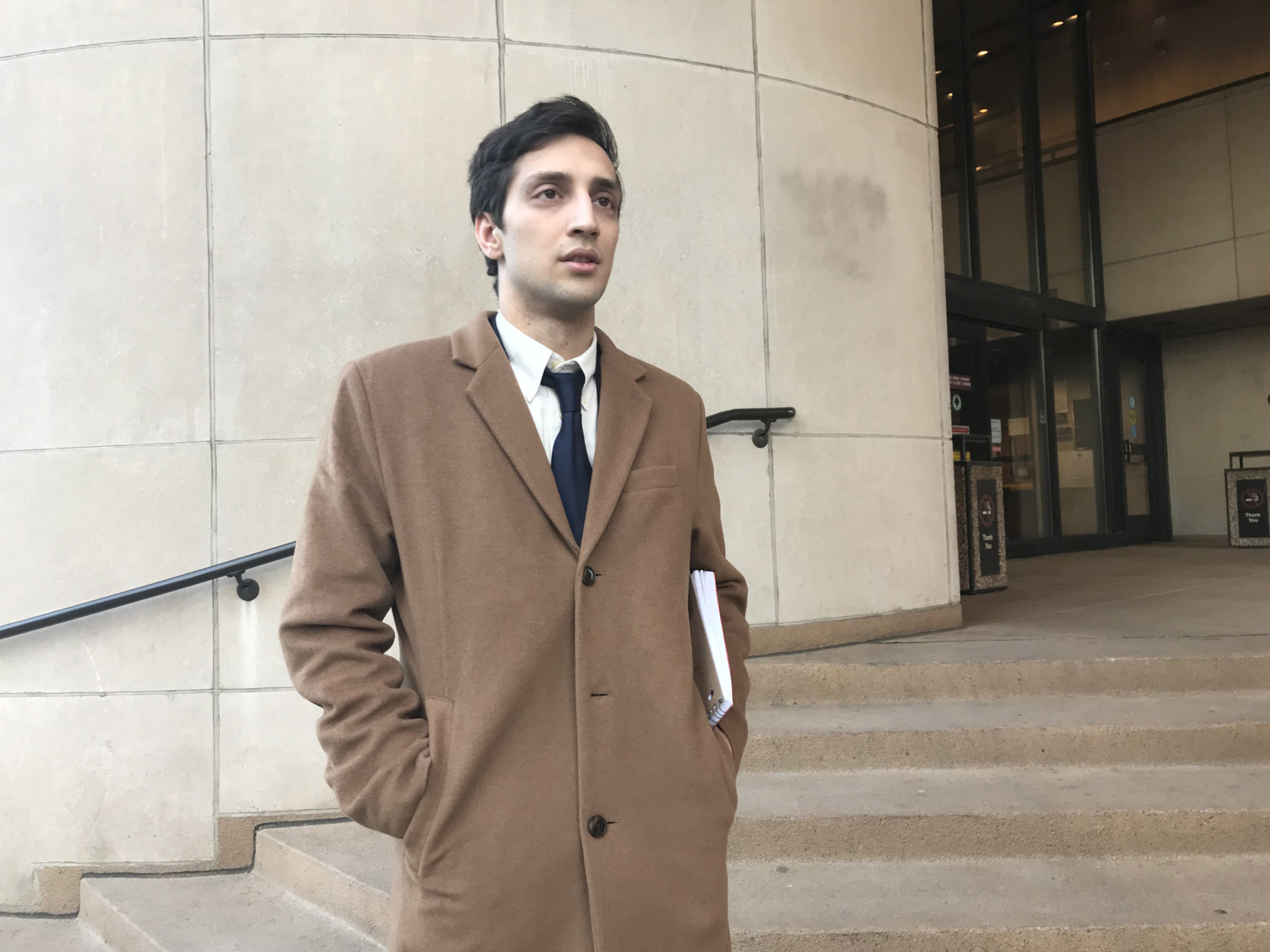
Jingyi Cui
An investigation into an allegation of sexual assault levied against Saifullah Khan ’19 — which helped prompt Yale to issue an emergency suspension of Khan in October — was dropped by the District of Columbia’s Metropolitan Police Department on Tuesday.
The department closed the investigation — which was reported to the department on Aug. 28 — without a charge against Khan, according to an email from Detective Darryl Richmond to Norm Pattis, Khan’s attorney. In response, Khan requested in a Wednesday morning email to Yale College Dean Marvin Chun that Yale immediately lift the emergency suspension against him. Chun issued the suspension on Oct. 7, two days after the News published new allegations of assault against Khan, who was acquitted of four counts of sexual assault in March.
The new allegations made by Jon Andrews, who is not affiliated with Yale, do not fall under the jurisdiction of the University-Wide Committee on Sexual Misconduct. In August, Yale informed Andrews that the University could not investigate the allegation given that he is not affiliated with Yale and the allegations did not take place on campus or at a Yale-affiliated event.
“As you might be aware, there are no charges against me in any jurisdiction, and certainly Yale has no jurisdiction over claims outside the university premises,” Khan wrote in his email to Chun. “According to the rules stated in your own suspension letter, which I find fault with regardless, the matter has been resolved. As such, I would request that you lift the emergency suspension immediately so that I can get back on track for school. Please do what America stands for and what Yale stands for, I believe in both.”
Chun declined to comment for the story. Richmond, the detective, also declined to comment, saying that he cannot disclose any information about the investigation.
In a court filing last Wednesday, Yale’s lawyers defended the suspension, citing the police investigation as one of many justifications for removing Khan from campus. Yale also reported that Khan had expressed suicidal feelings to administrators while still enrolled at Yale earlier this fall and posed a threat to the “safety and well-being of the members of the Yale University community and of [Khan himself].”
In an interview with the News, Andrews called the investigation’s closure only a “minor setback.” On Wednesday, Andrews filed a new complaint with the police department in Marion County, Indiana against Khan for allegedly sexually assaulting him in May.
Still, on Aug. 17, a judge in Andrews’ home state of Indiana granted him a restraining order against Khan based on his description of the same allegation of sexual assault dropped by the Metropolitan Police Department on Tuesday. Andrews said he will continue to press the department to reopen his case and that he plans to file a separate report of physical assault against Khan.
“[Pattis] and Khan should refrain from celebrating because this is far from as I see it,” Andrews said.
Pattis argued in an email to the News that the police department’s decision to close Khan’s investigation without charges reflects “just how silly Mr. Andrews’s allegations are.” Calling the allegations against Khan “ridiculous, and libelous,” Pattis said Yale must readmit Khan immediately.
But according to Michele Landis Dauber, a Stanford law professor and Title IX expert, Yale may still investigate and impose a suspension on Khan regardless of Metropolitan Police Department’s findings. The UWC has yet to conclude its investigation into the allegations of sexual assault that led to the criminal case against Khan, of which he was found not guilty in March. In this allegation, a classmate accused Khan of sexually assaulting her in the early hours of Nov. 1, 2015 after the annual Yale Symphony Orchestra’s annual Halloween show.
“Depending on the circumstances, regardless of what happens in law enforcement context, colleges might have a duty to investigate a case under Title IX ,” Dauber said. “And even if Title IX does not require an investigation, a private university may have a higher standard of conduct for their students and may have grounds for disciplinary action.”
In an email to the News, Andrews said the “best course” for Yale would be maintaining Khan’s suspension for the safety of its students. As Khan faces multiple allegations of sexual misconduct, he is likely to be a repeat offender, Andrews contended.
The hearings for Khan’s civil trial against Yale are scheduled for Jan. 8 and Jan. 10.
Serena Cho | serena.cho@yale.edu
Alice Park | alice.park@yale.edu







